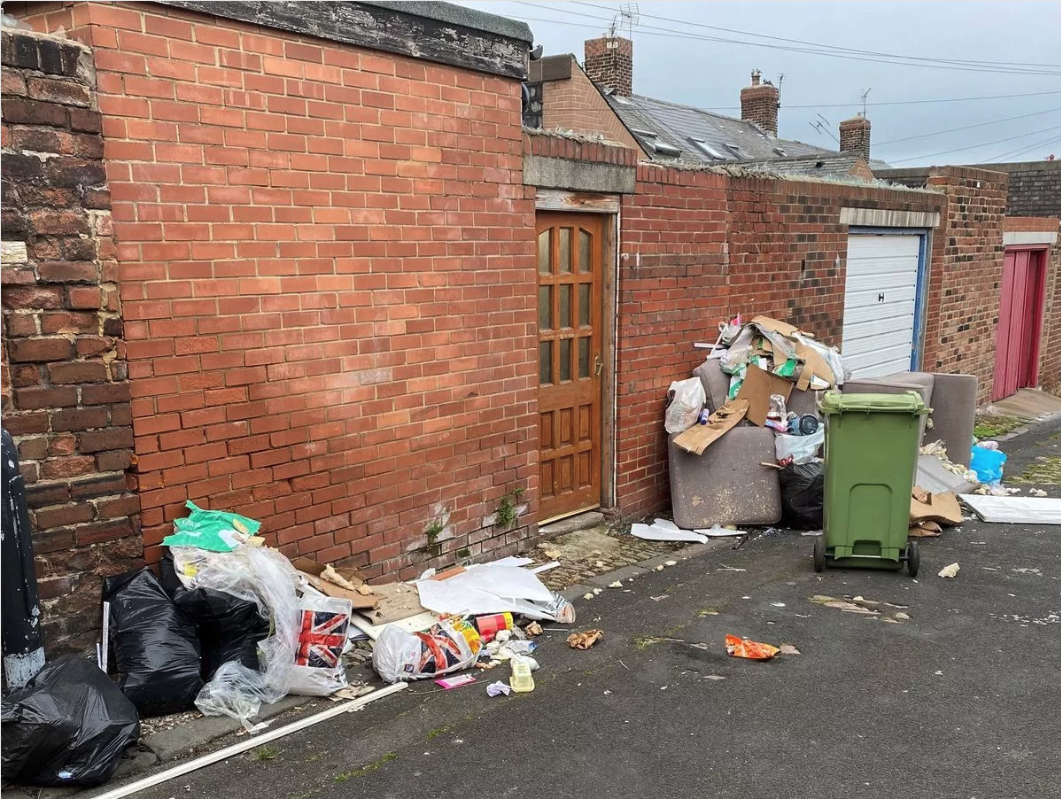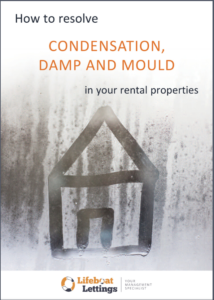
As a property owner and landlord, there are various responsibilities you have, and these include making sure any rubbish generated at your property is properly disposed of. This can be a particular challenge, when as a landlord, you are not at the property on a daily basis and may not be there on the day the tenant vacates if the tenancy comes to an end. Here, we will explore the challenges of rubbish for a landlord and outline the actions that you may need to take.
Rule one: try to ensure no waste is left at the property.
When a tenant leaves a property and doesn’t dispose of their waste properly, it is the responsibility of the property owner – the landlord – to ensure any waste left behind is disposed of effectively and legally. Bulky waste can be a particular challenge. The Environmental Act of 1990 ensures that not disposing of waste can lead to financial and even legal penalties for a landlord.
Fines of up to £2,500 can be issued for landlords leaving bulky rubbish on the property, and disposing of rubbish on the streets can result in significantly higher penalties – up to £50,000 – or even a custodial sentence.
Of course, it isn’t generally in the interest of the landlord to leave this waste lying around, whether on the property or on the street outside – particularly if re-letting the property – so most will want to make sure that it is done properly in the first place.
For large scale disposal after the end of a tenancy, landlords should consider using a skip or a professional waste management service to deal with bulky rubbish. These costs can be passed on to the tenant, so long as an on-going inventory and condition report is available from the start of the tenancy.
Rule two: Ensure tenants have the correct waste disposal receptacles during the tenancy.
Prevention is of course better than cure. Nonetheless, it can be difficult as a landlord to keep track of your tenants’ waste management, especially as you are not living at the property.
At a minimum, as a landlord, you are required to ensure that tenants have the correct bins for their rubbish disposal. This will vary from council to council regarding the correct colour bins for different types of waste.
If there are additional services such as garden waste collection offered, ensure the correct bin or method of disposal is available to the tenants.
Rule 3: Educate and Encourage recycling.
Tenants should be made aware of their responsibilities at the start of a tenancy. This will include providing details of the waste collection days, how to use the bins, etc. and also that any costs associated with waste removal after the end of the tenancy will be passed on to them.
As we all strive to do more to help the environment, as a landlord, you should try and encourage tenants to recycle more wherever possible.
As well as making sure they know the correct places for recycling, and ensuring that they are accessible, there are other options available. If your property has a garden, consider supplying your tenants with compost bins to ensure that household food waste is put to good use.
Tenants can utilise the recycling bins provided by the council but should also be notified of recycling centres, as well as encouraged to use professional waste management services for larger items.
Rule 4: Remove any Professional Waste Quickly and Efficiently.
Landlords should set a good example to tenants by quickly removing any waste created by the landlord during the tenancy. Should any work or maintenance take place at the property, including demolition, then it is the landlord’s responsibility to dispose of the resultant waste. This should not be left to the tenant to organise – even for small volumes of waste. This relates to general waste but also garden waste and, should the situation arise, hazardous waste. Consideration must be taken as to dispose of the waste in the correct and responsible way, as not doing so can see you, as a landlord, facing potential legal issues.
Overall
Attention needs to be paid to waste management at a rental property. As the Landlord is not at the property constantly, it can be difficult to monitor and nip any issues in the bud. Also, end of tenancy waste issues can therefore come ‘out of the blue’. Providing the correct information to the tenant at the start of the tenancy, as well as details of waste management facilities locally will go a long way to keeping control of the situation and heading issues off before they become a problem. Waste management is definitely a situation where ‘prevention is better than cure’.
Should bulky rubble be dumped on or near the property; dispose of it as soon as possible. You can, depending on circumstances, go down the route of getting the money back from a tenant for the removal at a later date, if it is waste that they have created, but the efficient disposal of waste up front removes any chance of legal implications in the immediate term.
At Lifeboat Lettings we will always help and advise landlords and assist where we can.
If you would like some help with any of the subjects covered above or anything else relating to properties or lettings, please email contact@lifeboatlettings.com.




